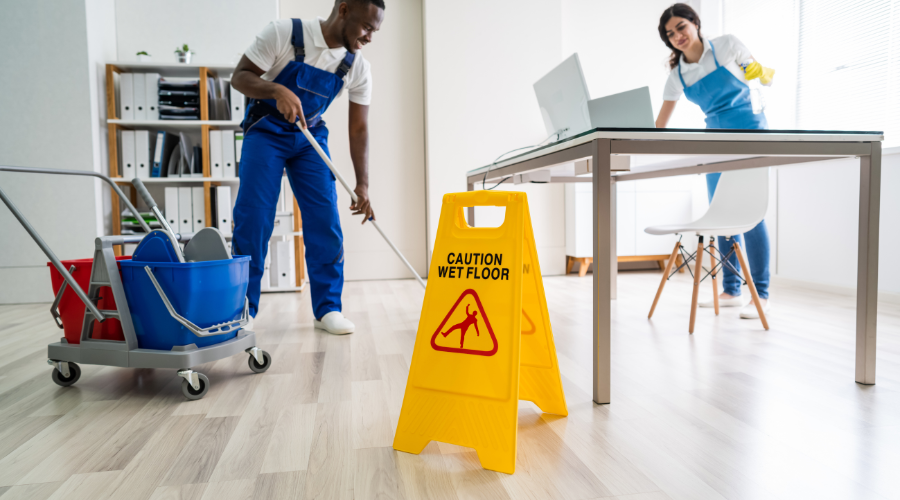How to Create a Minimalist Cleaning Routine?

I am a person specialized in minimalism, with a background…
In a world that’s constantly moving, finding time to clean can be challenging. Yet, living in a clean, clutter-free space can greatly enhance your mental clarity and overall well-being. A minimalist cleaning routine focuses on efficiency, simplicity, and maintaining a tidy environment without overwhelming yourself. This detailed guide will help you create a sustainable cleaning routine that aligns with minimalist principles.
Understanding Minimalism in Cleaning
Minimalism isn’t about having the least number of items; it’s about having only what you need and love, and keeping it in a way that brings peace and order to your life. When applied to cleaning, minimalism emphasizes:
- Essential Cleaning Tasks: Identifying the most crucial cleaning tasks that keep your home livable and pleasant.
- Efficient Use of Time: Utilizing strategies that save time and effort.
- Decluttering: Removing unnecessary items to make cleaning easier and more effective.
- Mindful Maintenance: Regularly maintaining cleanliness to prevent overwhelming cleaning sessions.
Step-by-Step Guide to a Minimalist Cleaning Routine
1. Declutter Your Space
Before establishing a cleaning routine, it’s essential to declutter. Here’s how:
- Start Small: Begin with one room or even one section of a room.
- Sort Items: Divide items into categories: keep, donate, discard, and relocate.
- Evaluate Necessity: Ask yourself if each item serves a purpose or brings you joy. If not, consider letting it go.
- Organize: Place kept items in designated spots. Use storage solutions like baskets or shelves to keep things tidy.
2. Create a Cleaning Schedule
A minimalist cleaning schedule ensures all tasks are covered without feeling overwhelming. Break down tasks into daily, weekly, monthly, and seasonal chores.
Daily Tasks:
- Make the Bed: Start your day with a small win that sets the tone for a tidy home.
- Clean Up After Meals: Wash dishes, wipe countertops, and sweep the kitchen floor.
- Tidy Up: Spend 10-15 minutes each evening picking up clutter and putting items back in their places.
Weekly Tasks:
- Dusting: Dust surfaces, including furniture, shelves, and electronics.
- Vacuuming/Mopping: Vacuum carpets and rugs, and mop hard floors.
- Bathroom Cleaning: Clean sinks, toilets, and showers.
- Laundry: Do your laundry, including changing bed linens and towels.
Monthly Tasks:
- Deep Clean Kitchen Appliances: Clean the oven, microwave, and refrigerator.
- Clean Windows: Wipe down windows and mirrors.
- Declutter Drawers and Closets: Go through drawers and closets to remove items you no longer need.
Seasonal Tasks:
- Deep Clean: Perform a thorough cleaning of the entire house.
- Rotate Seasonal Items: Store away seasonal items and bring out those needed for the upcoming season.
3. Simplify Cleaning Supplies
Minimalism extends to cleaning supplies. Instead of having a multitude of specialized cleaners, opt for a few multi-purpose ones. Essential supplies include:
- All-Purpose Cleaner: For most surfaces.
- Glass Cleaner: For windows and mirrors.
- Baking Soda and Vinegar: Natural and effective for various cleaning tasks.
- Microfiber Cloths: Versatile and reusable for dusting and wiping.
- Vacuum Cleaner: Efficient for floors and upholstery.
- Mop and Bucket: For hard floors.
4. Efficient Cleaning Techniques
Efficiency is key in a minimalist cleaning routine. Adopt these techniques to save time and effort:
- Clean as You Go: Don’t let messes accumulate. Clean spills and messes immediately.
- Top to Bottom, Left to Right: Clean each room from top to bottom and left to right to avoid re-cleaning areas.
- Batch Cleaning: Group similar tasks together. For example, dust all rooms before vacuuming.
- Use Timers: Set a timer for each task to stay focused and efficient.
5. Mindful Maintenance
Maintaining cleanliness prevents the need for exhaustive cleaning sessions. Develop habits that keep your home consistently tidy:
- Adopt a “One In, One Out” Policy: For every new item you bring in, remove an old one.
- Nightly Reset: Spend a few minutes each night tidying up.
- Weekly Review: At the end of each week, review your space and make any necessary adjustments.
Minimalist Cleaning Routine Example
Here’s an example of a minimalist cleaning routine you can adapt to your needs:
Daily:
- Morning: Make the bed, tidy up living areas.
- After meals: Clean dishes, wipe counters.
- Evening: 10-minute tidy-up.
Weekly:
- Monday: Dust surfaces.
- Tuesday: Vacuum and mop floors.
- Wednesday: Clean bathrooms.
- Thursday: Laundry and change linens.
- Friday: Declutter a small area (drawer, shelf).
- Saturday: Catch up on any missed tasks.
- Sunday: Relax and enjoy your clean space.
Monthly:
- First Week: Deep clean kitchen appliances.
- Second Week: Clean windows and mirrors.
- Third Week: Declutter closets.
- Fourth Week: Deep clean one room.
Seasonal:
- Spring: Deep clean entire house, rotate seasonal items.
- Summer: Focus on outdoor spaces, windows.
- Fall: Prepare for colder months, deep clean.
- Winter: Organize holiday items, declutter.
Tips for Sustaining a Minimalist Cleaning Routine
- Stay Consistent: Stick to your routine, even when life gets busy. Consistency is key to long-term success.
- Involve Family Members: Share responsibilities to make the process quicker and more enjoyable.
- Reward Yourself: Treat yourself after completing cleaning tasks to stay motivated.
- Reflect and Adjust: Regularly evaluate your routine and make adjustments as needed.
Conclusion
A minimalist cleaning routine simplifies your life, reduces stress, and creates a serene living environment. By decluttering, creating a manageable schedule, simplifying supplies, and adopting efficient techniques, you can maintain a clean home with minimal effort. Embrace the principles of minimalism in your cleaning routine, and enjoy the benefits of a tidy, peaceful space.
What's Your Reaction?
I am a person specialized in minimalism, with a background in behavioral analysis and human development. My passion is to simplify communication and help people focus on what is essential, both personally and professionally. I use my knowledge of human behavior to create content that promotes clarity and purpose, inspiring positive and lasting transformations. I believe that less is more, and my mission is to convey this philosophy through words.



